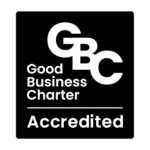
Does your target audience use the internet? If yes then there’s a high chance SEO is worth it for your business.
Google.com is the no. 1 source for traffic on the internet. Responsible for a whopping 57.8% of link referrals. That’s more than 10 times the amount of referrals from Facebook, the next biggest source of traffic.
It’s basically free advertising. Yes you can pay for ads to jump the queue and rank higher and faster, but organic traffic actually gets higher click-through rates and return on investment.
If you’re just competing against other small businesses the bar to rank can sometimes be quite low, with lots of small businesses never having done SEO before. A study by freshchalk.com found that 25% of small business website’s don’t contain an H1, which is one of the most fundamental things you need to add to a webpage to tell a search engine what it is about.
Whether you want to learn SEO yourself or hire a professional to help, SEO can provide a significant boost to your bottom line.
46% of searches on Google are for a local business or service, meaning SEO is still a fantastic tool for reaching your customers. Where Google thinks a search is looking for a local result, it will change ranking positions based on the searcher’s location. For small businesses, that work only in one geographic area, there are specific things you can do to help you reach a local audience.
At the other end of the spectrum if you’re in a niche market where your audience are distributed far and wide, you need somewhere where you can reach those far-flung corners of the globe, but also be hyper-targeted to a niche audience. Well, Google gives you access to a market of billions and also target people at the very moment they are searching for something relevant to your products and services. This sounds like the perfect marketplace for a niche business.
To get under the noses of the right people, you should start with the fundamentals listed above: research your audience and competitors, find out what they are searching for and provide comprehensive answers and solutions to everything they need. Providing this within an intuitive user experience, that makes it easy to find related content, will give you a great foundation for good SEO.
For a small business, especially those selling high value products or services, a few sales a month coming from SEO can have a massive impact. This means targeting some long-tail keywords can be very effective. These are keywords with three or more words in them, that usually have low competition and are easy to rank for. Plus they are often highly relevant to your ideal target audience. We’ve had clients that get regular sales from long-tail keywords that keyword research tools say get minimal searches per month.
Even for the smallest businesses SEO is worth considering. As mentioned above it can have a higher return on investment than most marketing channels. So what might be stopping you?
If you’re already at full capacity with a steady stream of enquiries coming through, first of all well done, keep doing what you’re doing. In this case SEO might not be a priority, but if you have ambitions to expand then SEO may provide new opportunities.
Whether you are a trade or service provider, creative or technical, whether you work from an office, or from home, SEO can work for small businesses. The strategy and tactics will be different for each one, so getting an expert opinion is highly recommended. Why not get in touch withdigital today .




